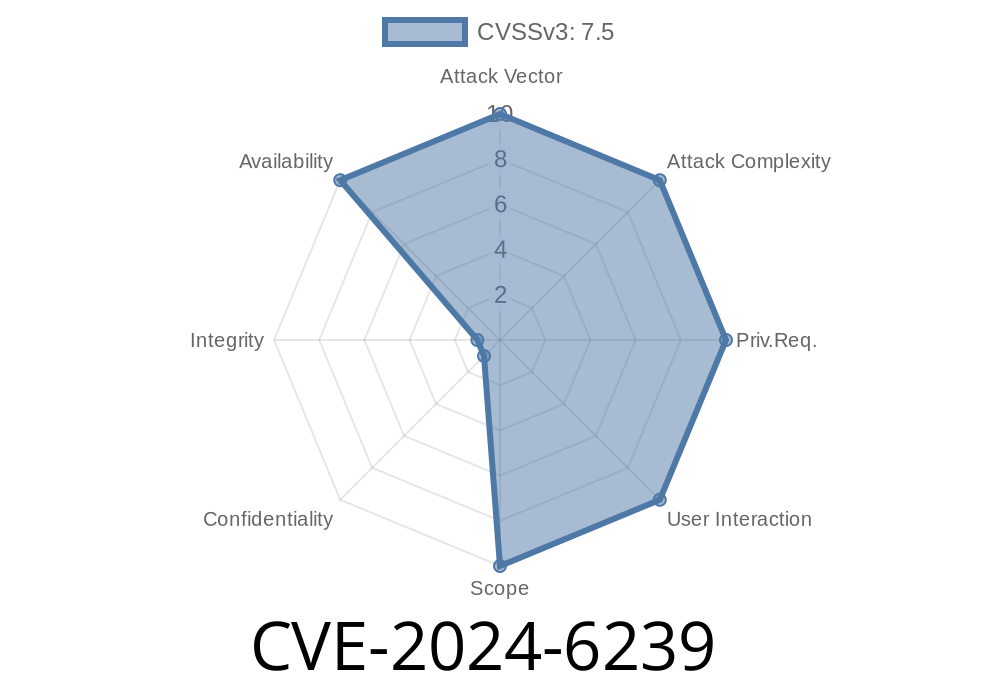In June 2024, a newly disclosed vulnerability, CVE-2024-6239, was identified in the popular open-source PDF rendering library Poppler, specifically affecting its pdfinfo command-line utility. This post delves into the issue, explains how it can be exploited, and demonstrates why this seemingly small bug can have significant security implications.
What is Poppler and Pdfinfo?
Poppler is a PDF rendering library often used by Linux distributions, desktop environments, and document-processing servers. One of its included utilities is pdfinfo, which is a command-line tool that extracts information, like title, author, and metadata from PDF files.
The pdfinfo utility comes with various command-line options, including the -dests parameter. This option prints named destinations defined in the document, which are essentially hyperlinks or bookmarks.
What Happened?
A *flaw was discovered* in how pdfinfo handles the -dests parameter. If a user runs pdfinfo -dests against a PDF file with certain malformed (intentionally crafted or corrupt) data structures, pdfinfo will crash. This is a textbook Denial of Service (DoS) vulnerability. Though it doesn't allow code execution or privilege escalation, crashing utilities in automated or network-connected workflows can be catastrophic.
Vulnerable Code Section
The vulnerable code lies in the function parsing the "Destination" dictionaries inside the PDF structure. If these are malformed, the program doesn't properly check for null pointers or invalid objects, which leads to a segmentation fault when accessing memory it shouldn't.
Here's a simplified snippet resembling the flawed logic (for illustration)
// poppler/utils/pdfinfo.cc
if (obj->isDict()) {
Object dest = obj->dictLookup("D"); // Fails to check if "D" exists or is valid
if (dest.isArray()) {
// Process dest...
}
// No proper cleanup
}
Proof of Concept (PoC)
A malicious PDF can be generated or crafted with a broken Destination entry. Here's a pseudo-PDF segment:
1 obj
<<
/Type /Catalog
/Names << /Dests 2 R >>
>>
endobj
2 obj
<<
/Names [
(BrokenDest) 3 R
]
>>
endobj
3 obj
% Malformed destination, missing required keys
<<
/Type /XYZ
>>
endobj
If you save the above as broken.pdf and run
pdfinfo -dests broken.pdf
Affected Versions: Poppler <= 24.05. (check [official release notes][poppler-news])
- Severity: Low-to-Medium (Depends on usage context: server-side batch processing workflows may be at risk)
Real-World Scenarios
- Document processing servers: If your automated PDF-to-text, metadata extraction, or file indexing services run pdfinfo as part of their pipeline, a malicious user could crash the workflow by uploading a crafted PDF.
- Desktop utilities/workflows: Automated scripts on Linux file shares or cron jobs might halt unexpectedly.
Patch & Mitigations
1. Update Poppler: If a recent patch is available from your Linux distribution, update Poppler immediately.
- Poppler Official Releases
2. Validation: Never process untrusted PDFs. Apply sandboxing, or run utilities like pdfinfo inside containers.
References & Further Reading
- CVE-2024-6239 on MITRE
- Poppler GitLab Repository
- [Poppler Project News / Release Notes][poppler-news]
- Ubuntu Security Alerts
- Pdfinfo Manual
Summary
While CVE-2024-6239 might seem minor at first glance, for organizations processing PDFs at scale, a DoS vulnerability can disrupt vital workflows. Always keep dependencies up to date, validate user inputs, and monitor your systems for crashes. For more details, check out the linked references.
Stay safe and keep your software patched!
[poppler-news]: https://gitlab.freedesktop.org/poppler/poppler/-/blob/main/NEWS
Timeline
Published on: 06/21/2024 14:15:14 UTC
Last modified on: 08/19/2024 16:47:11 UTC
